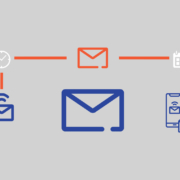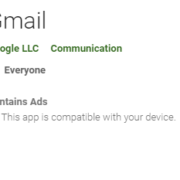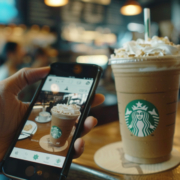The Ultimate Guide To Marketing To Gen Z
Every generation has its own “brand” of marketing. If you’re a millennial, I bet you can vividly picture every ad when we say “Nickelodeon during the ’90s.” While that was 30 years ago, the same marketing rule still applies to any generation: know your audience.
Gen Z has a few marketing challenges, but of course, that’s no different than any other generation. In the past, people have said that Millennials are difficult to market to and have been the cause of many businesses’ decline because they’re a new and different audience.
However, in the age of Generation Z, audience targeting and data technology have significantly improved compared to when millennials were aging. We now have access to data that helps us understand Gen Z consumer trends in a way that wasn’t there for millennials or older.
It would have taken years for brands “to get hip” in the 1990s, but thanks to new digital marketing tools, we already know what Generation Z is thinking about buying and where they’re looking for more information about those products.
We’ll break down what it takes to market to Gen Z customers, backed by successful case studies and new data.
How to Market to Generation Z
Anyone born after 1995 falls under “Generation Z.” These older teens and younger 20-somethings have just entered the market with their annual purchasing power of $44 billion, but some companies are finding it difficult to keep this audience brand-loyal.
That’s because the attention span of Gen Z is 8 seconds or less, and over 50% of the Gen Z population uses ad blocking software (so how do you even get your brand in front of them?). Many are immune to tried and true advertising methods because they’ve literally grown up with pop-ups and display ads, as well as ads throughout their social feeds, from Facebook to Twitter to TikTok.
So, let’s take a look at what we know about Gen Z from following this audience and learning about their purchases.
How Gen Z Views Advertising
Basically, it’s easy for Gen Z to file an advertiser (your company) away as “spam” or “scam,” completely closing the gate on your brand. They have been doing their homework on Google since they were 10, so they know how to get the most value for their money.
Plus, they’re the most technically advanced generation. They won’t fill out an opt-in if they don’t trust your company, and if they DO fill it in just to get the free sample, they likely won’t pay attention to any further lead nurturing. That’s means a lot of wasted effort to capture the attention of an audience who will never care (or convert) anyway.
So what’s the answer?
The Power of Social Trust
Brands need to consider the power of social media and living where their audience lives online. That’s how marketers can enhance a brand’s social power and influence on Gen Zers.
Your Generation Z marketing strategy should incorporate a strong social media presence with unique content that your audience will like and follow. How do you do this? By creating a brand persona that your audience can relate to in order to build that trust.
If your brand builds social trust and has high engagement, fellow Gen Zers will view this as a positive and are more likely to take action on products their peers are liking and sharing. Look at how fast food giants like Wendy’s have been able to capitalize on this audience through the usage of memes!
Another part of marketing to Gen Z is cultivating a sense of urgency with FOMO (fear of missing out). FOMO marketing works with Gen Z if you build up your brand’s visibility, particularly on social channels (whether that’s organic or through social media marketing). From there, it’s a matter of gaining their trust to ask for the opt-in.
Takeaways and To-Dos
Ultimately, Gen Z looks beyond advertising more times than not and conducts research before purchasing. These younger audiences want to get the most value for their money, so make sure you plant the seeds of social trust through proof with influencers and organic reviews.
Along with that, you must also have an engaging social media strategy. Set up a marketing strategy on your audience’s primary social media platforms (Snapchat, TikTok, etc.) that focuses on content and engagement. Then build your content around what your Gen Z audience likes.
Use social media and hashtag tracking to gather content examples. For marketing campaigns, target Gen Z by location, age and interests (only 1-2), at first. Set up remarketing tags on social audiences to capture 1) users who converted 2) users who didn’t convert, and then build out campaigns to try and capture those users or re-engage them.
Opt-Ins and Email Marketing
Gen Z consumer trends show that they live in their email inboxes just as much as social media feeds. According to new research that studied their responses to email marketing, Generation Z checks their email multiple times per day. They receive between 15 and 20 emails a day, and 28% of respondents in this study say that they want to hear from brands they like at least once per day.
So, imagine you have one chance per day to capture their attention. What would you say to this highly engaged, digital native audience? Put some effort into an email marketing strategy!
Email marketing strategies incorporate personal messaging to target audiences. It’s an opportunity to speak one-on-one, and Gen Z has high regard for who they allow in their inbox. It’s likely that if they opted in to your email marketing, they want to hear from you.
However, email is pretty personal to Gen Z, so treat with it respect. The dreaded unsubscribe goes to any brand that violates their trust by using clickbait subject lines, promo codes that don’t work or a lead funnel that leads them down a hole of spammy advertising pages.
Takeaways and To-Dos
Gen Z values email marketing and uses it for personal communication with work, friends, school and even their favorite brands. Just like previous generations, always nurture your audience and provide more information instead of promotion with email marketing.
With that, pay attention to open rates, conversions and audience segmentation. Set up an email marketing strategy based on content and your top products. Create lead generation campaigns with social media to grow your list and set up a preference center so they can control how many emails they receive.
Targeted Video Marketing
Generation Zers are digital natives and naturally love video content. TikTok’s explosive growth is the most evident proof of that. (The social app grew to almost 1 billion active users in a single year.) Since TikTok is completely about short, unique video clips from people all over the world, it’s widely viewed as the video marketing platform for brands who want to get close to Gen Z.
Since videos automatically play on most social networks, they easily capture a viewer’s attention as they scroll down a timeline. Plus, videos are a big engagement motivator, because marketing to Gen Z has higher success rates when you incorporate video into your social media campaigns.
Stimulating sounds, images, graphic designs, animations and visually stunning subject matter keep these users tuned into your brand, and is probably the reason that TikTok is one of the most widely used apps for the Gen Z audience.
You don’t have to be a director to create incredible videos, so stop sweating. Basic smartphones have great camera quality nowadays, so you can snap and post your videos on the fly. Behind-the-scenes, unique and authentic content works wonders with these younger viewers!
Takeaways and To-Dos
Gen Z spends most of their time watching videos on YouTube, TikTok, Instagram Stories and Snapchat. In order to capitalize on that, create a content marketing strategy to engage with this audience more.
Your Generation Z marketing strategy should incorporate long-form content and short-form content (10-15 second clips). Along with that, plan to set up quirky inbound marketing videos to capture opt-ins.
Marketing To Generation Z: Next Steps
Unlike baby boomers and millennials, Gen Z has grown up with mobile devices and is a new generation of young consumers focused on mobile-first content. They engage on social networks more often than older generations and are highly receptive to brands – both positively and negatively.
Work on building brand loyalty with this age group by creating a personable brand persona that is cognisant of the comforts, joys and issues that matter to Gen Z. That, along with a strong social media presence, email and video content marketing will help foster new customers as well as increase loyalty with existing ones.
Ready to work with a digital advertising agency that’s going to help you succeed with this new generation? Contact us today.









